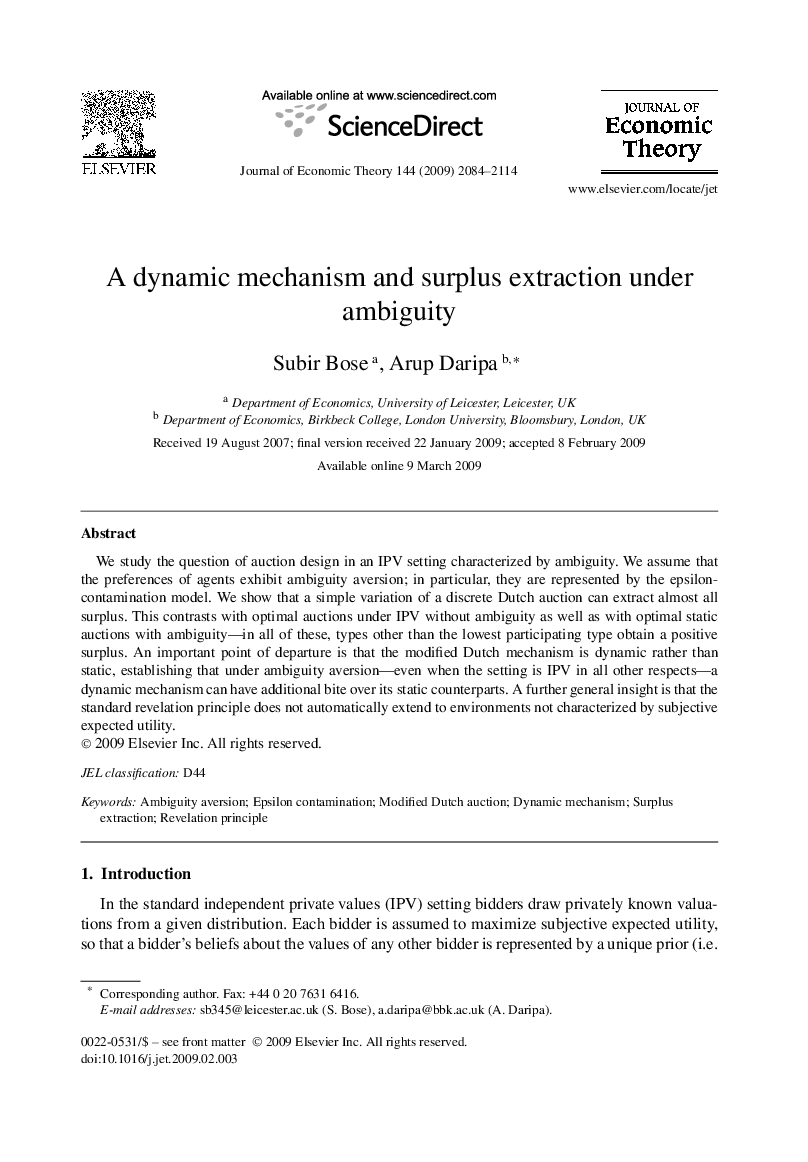| Article ID | Journal | Published Year | Pages | File Type |
|---|---|---|---|---|
| 957132 | Journal of Economic Theory | 2009 | 31 Pages |
We study the question of auction design in an IPV setting characterized by ambiguity. We assume that the preferences of agents exhibit ambiguity aversion; in particular, they are represented by the epsilon-contamination model. We show that a simple variation of a discrete Dutch auction can extract almost all surplus. This contrasts with optimal auctions under IPV without ambiguity as well as with optimal static auctions with ambiguity—in all of these, types other than the lowest participating type obtain a positive surplus. An important point of departure is that the modified Dutch mechanism is dynamic rather than static, establishing that under ambiguity aversion—even when the setting is IPV in all other respects—a dynamic mechanism can have additional bite over its static counterparts. A further general insight is that the standard revelation principle does not automatically extend to environments not characterized by subjective expected utility.
